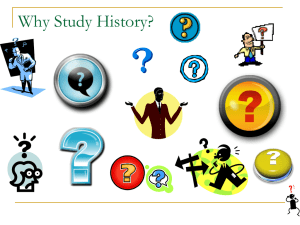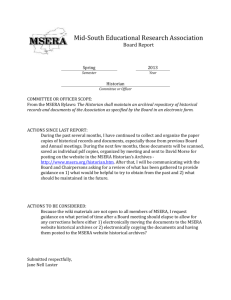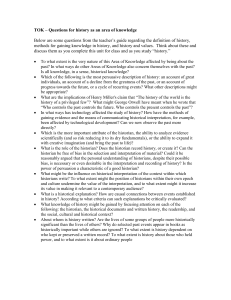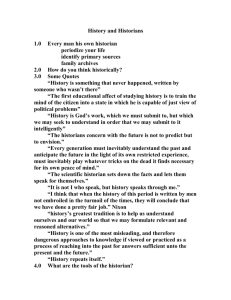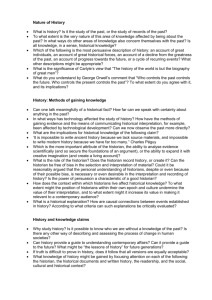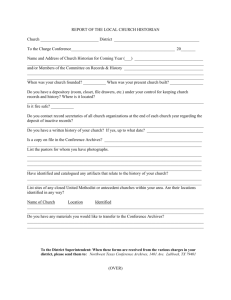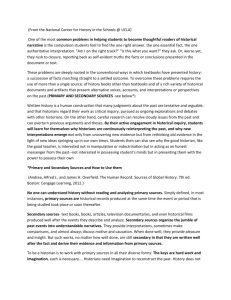roles of a historian
advertisement
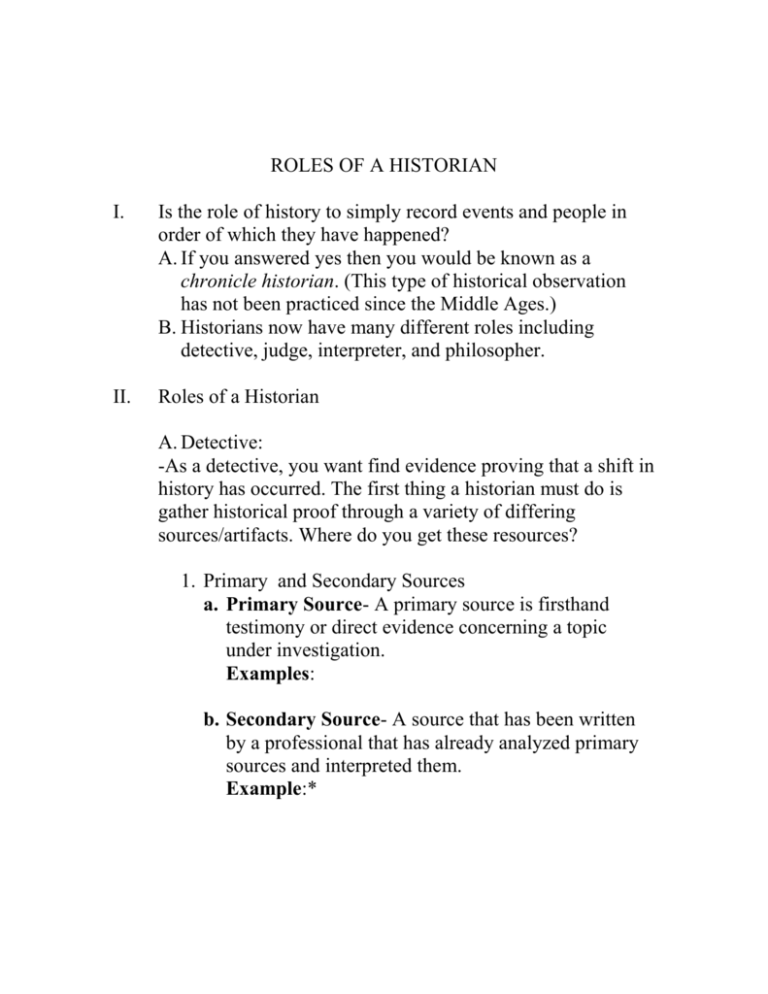
ROLES OF A HISTORIAN I. Is the role of history to simply record events and people in order of which they have happened? A. If you answered yes then you would be known as a chronicle historian. (This type of historical observation has not been practiced since the Middle Ages.) B. Historians now have many different roles including detective, judge, interpreter, and philosopher. II. Roles of a Historian A. Detective: -As a detective, you want find evidence proving that a shift in history has occurred. The first thing a historian must do is gather historical proof through a variety of differing sources/artifacts. Where do you get these resources? 1. Primary and Secondary Sources a. Primary Source- A primary source is firsthand testimony or direct evidence concerning a topic under investigation. Examples: b. Secondary Source- A source that has been written by a professional that has already analyzed primary sources and interpreted them. Example:* B. Interpreter: - Once you have gathered all of your information you must decide exactly what you want to prove historically. This will take a keen whit and an ability to analyze information that is collected. So how does a historian interpret? 1. Main role of an historian is toa. Generate Contradictions (A vs. B) b. Fill in the Gaps (What really happened?) 2. Get more than one point of view. Argument is weak if you only understand one side of the issue or event. 3. DO NOT JUST REPORT FACTS!!!! You must analyze the facts thus creating a deeper meaning.* C. Judge: - A judge will look at the evidence and decide which point of view/idea/thesis is correct or the most accurate.* 1. For example you could prove which events shifted human history. Example Graffiti in New York 2. Or… One could prove that something or someone existed. Example Kool Herc 3. Once all of the evidence has been collected, the judge will then interpret the past and make it into a relevant history. Example: Graffiti plus Kool Herc equals the birth of hip-hop culture in the United States. Thesis: “The creation of hip-hop was a part of a cultural street revolution that could only be compared to the Harlem Renaissance in terms of creativity, expression, and influence.” 4. CAUTION: A historian will sometimes show bias. It is best when a historian does not show bias but; “History is always written by the winners.” D. Philosopher: Now that you have judged and interpreted the collected evidence, the next step is to attach meaning to it historically. In other words; “Why would or should I care?” 1. This is by far the most important job of any historian. The ability to fully analyze evidence in such a way that can clearly explain why things happen in human history defines what we are today. There is no action without a reaction. E. With a combination of each of these roles you will be a true historian. Your main objective for this class is to become a full fledge historian defined by these guidelines. The way you will be assessed on your ability as a historian will come through the ideas you convey through writing, dialog, and other means of demonstration your knowledge. Start project by students making up a story. Have students pass there stories to new group. Group will read and then create primary source (finish for homework). Read How to Mark a Book Hand out Lies My Teacher Told Me 1. 2. 3. 4. What is history to you? Is history important? Why or why not? Should we care about history that is not “ours”? What is “OUR” history?

